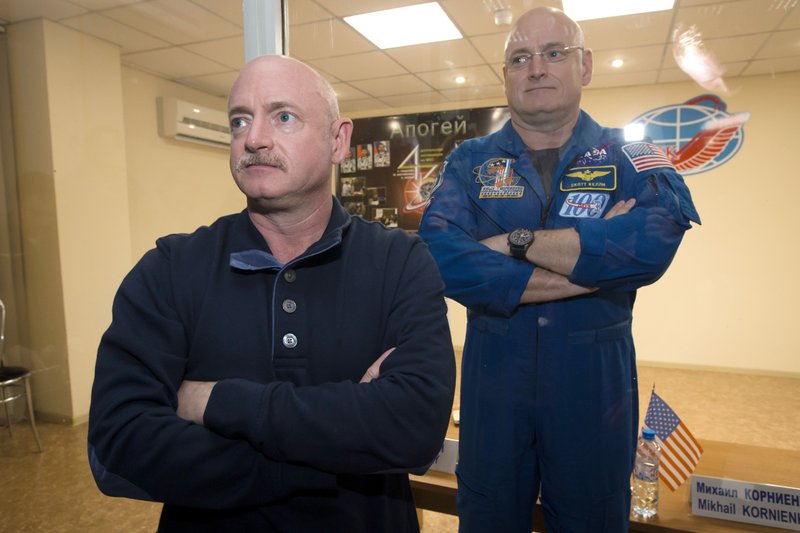WASHINGTON -- Nearly a year in space put astronaut Scott Kelly's immune system on high alert and changed the activity of some of his genes compared with his Earth-bound identical twin, researchers said Friday.
Scientists don't know if the changes were good or bad, but results from a unique NASA twins study are raising new questions for doctors as the space agency aims to send people to Mars.
Tests of the genetic doubles gave scientists a never-before opportunity to track details of human biology, such as how an astronaut's genes turn on and off in space differently from at home. One puzzling change announced Friday at a science conference: Kelly's immune system was hyperactivated.
"It's as if the body is reacting to this alien environment sort of like you would a mysterious organism being inside you," said geneticist Christopher Mason of New York's Weill Cornell Medicine, who helped lead the study. He said doctors are now looking for that in other astronauts.
Since the beginning of space exploration, NASA has studied the toll on astronauts' bodies, such as bone loss that requires exercise to counter. Typically they're in space about six months at a time. Kelly, who lived on the International Space Station, spent 340 days in space and set a U.S. record.
"I've never felt completely normal in space," the now-retired Kelly said in an email, citing the usual congestion from shifting fluid, headaches and difficulty concentrating from extra carbon dioxide, and digestive complaints from microgravity.
But this study was a unique dive into the molecular level, with former astronaut Mark Kelly, Scott's twin, on the ground for comparison. Full results haven't yet been published, but researchers presented some findings Friday at a meeting of the American Association for the Advancement of Science.
A number of genes connected to the immune system became hyperactive, Mason said. It's not a change in DNA but in what's called "gene expression," how genes turn off and on and increase or decrease their production of proteins. Mason also spotted a spike in the bloodstream of another marker that primes the immune system. Yet at the same time, Kelly's blood showed fewer of another cell type that's an early defense against viruses.
The good news: Most everything returned to normal shortly after Kelly got back on Earth in March 2016. Those immune-related genes, however, "seemed to have this memory or this need to almost be on high alert" even six months later, Mason said.
Ultimately, the twin study gives NASA a catalog of things to monitor on future missions to see if other astronauts react the same way. Astronauts on future missions will be able to do some of this testing in space instead of freezing samples for scientists back home, Mason said.
A Section on 02/16/2019

